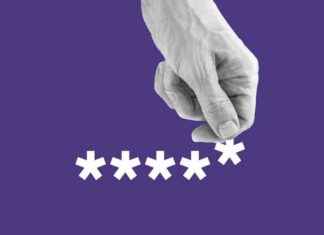Although more than 60 countries have not recognized the legitimacy of his re-election in 2018 – including the United States and the European Union (EU) – the Venezuelan head of state, Nicolas Maduro, was designated on Monday March 11, by his party to run for a third term in the presidential election scheduled for July 28.
“The base of the PSUV decided that Nicolas Maduro was the candidate for president, 4,240,032 people participated,” Diosdado Cabello, vice-president of the Socialist Party of Venezuela, considered number two, said on the X network of power even if it does not appear in the executive.
Elected for the first time in 2013 after the death of former President Hugo Chavez (1999-2013), of whom he calls himself the heir, Mr. Maduro, 61, was re-elected in 2018 during a contested and boycotted vote by the opposition. Since then, a battery of sanctions has fallen on Venezuela and the leaders in power. But the head of state has managed to hold on with an iron fist despite the serious economic crisis the country is going through.
The formalization of his candidacy was long overdue since the Venezuelan electoral authority (CNE) announced last week the date of the presidential election as July 28, the date of Hugo Chavez’s birth. Nominations can be officially submitted from March 21 to 25 and the election campaign is scheduled for July 4 to 25.
No elections “without me”, proclaims the opponent
Government and opposition agreed in October in Barbados to organize this election during the second half of 2024 in the presence of international observers. But this agreement, under the aegis in particular of Norway, mediator in the negotiations, has since been vigorously denounced by the opposition which accuses Mr. Maduro of not having respected it. The legitimacy of the presidential election is already in question.
For Norway, however, it is “fundamental” that the Barbados agreement applies. In its terms, it was to open up to those “aspiring to run” the possibility of challenging their ineligibility in court. The opposition hoped that this procedure would allow its champion, Maria Corina Machado, declared ineligible by the courts, to finally be able to present herself. But the Supreme Court, accused of being at the behest of those in power, confirmed on January 26 the ineligibility of the woman who had won the Venezuelan opposition primary in October, receiving more than two million votes and 92%. votes.
No elections “without me”, Ms Machado had launched after her sentence to fifteen years of ineligibility for having supported American sanctions. She persists in wanting to introduce herself and makes multiple trips. But the closing date for applications is approaching and she may be pushed to appoint a replacement.
On Saturday, she denounced “the regime of Nicolas Maduro who kidnapped our campaign director from the state of Barinas,” bringing to four the number of leaders of her party detained since January. For Ms. Machado, this new arrest constitutes “a new violation of the already flouted Barbados agreement”.
The decision of the Supreme Court to dismiss the champions of the opposition, Ms. Machado but also Henrique Capriles, twice a former presidential candidate, was roundly denounced by Washington, the EU and several South American countries. In the process, the United States announced that it would reactivate sanctions against Venezuela’s oil and gas sector, suspended for six months in the wake of the Barbados agreement.
Increase in public appearances
Mr. Maduro had increased his public appearances in recent weeks in this oil country of 30 million inhabitants. Tall, with a proud mustache, the former metro-bus driver frequently recalls his origins and likes to cultivate an image of a man of the people. He often likes to talk about common sense, to butcher English words, to talk about baseball or his TV evenings with his wife Cilia Flores, the “first fighter”, a former prosecutor who is omnipresent on the Venezuelan political scene.
Trained in Cuba, his culture goes far beyond that of the bus driver. “He is one of the young leaders with the best abilities” to lead the country, Hugo Chavez said at the end of 2012, designating him as his heir before his death a year later.
Many underestimated him. Wrongly. He was able to assert himself against his rivals within the United Socialist Party (PSUV) of which he is president, maneuver through the storms of the monster demonstrations which followed his contested 2018 election, juggle an unprecedented economic crisis, the economic sanctions, the pandemic and corruption scandals running into billions of dollars. He has also survived the plots, real and imaginary, which he regularly denounces.
In the sights of the International Criminal Court
Combining pure political discourse, sometimes heavy jokes, and personal asides, he knows how to keep a crowd in suspense. A sympathetic image clashing with his way of running the country which relies largely on the army and the security apparatus. Venezuela is in the sights of the International Criminal Court. NGOs denounce arbitrary arrests, torture, extrajudicial executions, framed trials, censorship and control of the media.
Nicolas Maduro also shows that he is capable of RealPolitik. He cut all social spending, removed customs duties on imports to allow the resupply of a country that lacked everything and authorized dollarization to curb hyperflation. The greenback of the hated enemy is now king in the land of Chavista socialism.
Uncompromising in his anti-Yankee speech, Maduro also knows how to negotiate on the sly. He thus managed to have American sanctions temporarily lifted from November to April. He was also able to obtain the release of two nephews of Cilia Flores convicted of drug trafficking in the United States, and especially in December of Alex Saab, considered one of the main intermediaries in Venezuela, imprisoned in the United States for money laundering and considered Maduro’s straw man.







